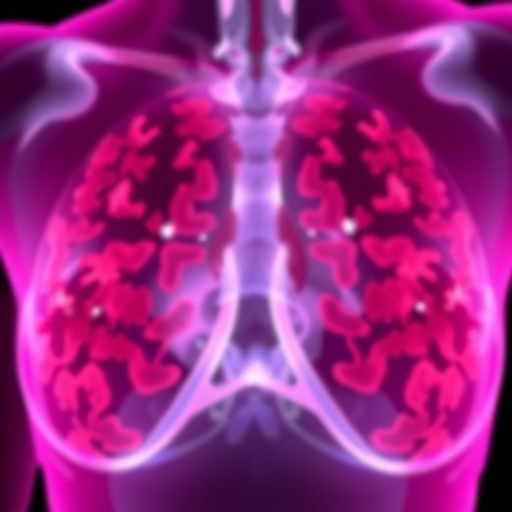In the ongoing battle against cancer, particularly triple-negative breast cancer (TNBC), researchers are discovering innovative strategies that could transform treatment modalities. A recent study led by Gu, Z., Ye, F., Luo, H., and their colleagues dives into the intricacies of how Metformin, a widely used medication for type 2 diabetes, could enhance the efficacy of histone deacetylase inhibitors (HDACi) against this aggressive form of breast cancer. The implications of this research not only offer hope for improved patient outcomes but also challenge traditional boundaries within cancer therapeutics.
Triple-negative breast cancer is known for its lack of targeted therapies, making it particularly difficult to treat. Unlike other breast cancer subtypes, TNBC does not express estrogen or progesterone receptors, nor does it overexpress the HER2 protein. Therefore, conventional hormone therapies and targeted agents that work well with other breast cancer types are ineffective. This renders patients with TNBC herewithout effective, tailored treatment options, often leading to poorer prognoses. The search for alternative strategies has intensified, focusing on repurposing existing drugs like Metformin to overcome this hurdle.
Metformin, primarily known for its antidiabetic properties, has recently gained attention in the oncology community due to its potential anticancer effects. The drug’s ability to modulate metabolic pathways, particularly its role in lowering insulin levels and improving insulin sensitivity, creates an environment that may hinder tumor growth. This metabolic shift is critical, especially in cancer types like TNBC, where cellular metabolism can significantly impact tumor behavior and treatment response.
The study underscores Metformin’s role in sensitizing TNBC cells to histone deacetylase inhibitors, which are a class of compounds that can influence gene expression and promote cancer cell death. By inhibiting the deacetylation of histones, these drugs can lead to the reactivation of tumor suppressor genes and the downregulation of oncogenes. However, the effectiveness of HDAC inhibitors has often been limited due to tumor resistance mechanisms, primarily driven by dysregulated signaling pathways in cancer cells.
One of the key findings of the research is Metformin’s targeting of fibroblast growth factor receptor 4 (FGFR4), a receptor implicated in oncogenic signaling pathways. FGFR4 is known to play a role in cell proliferation, survival, migration, and invasion, making it a significant player in the progression of various cancers. The study presents compelling evidence that Metformin can effectively downregulate FGFR4 expression in TNBC cells, thereby amplifying the cytotoxic effects of HDAC inhibitors.
The mechanistic insights provided by this research reveal how Metformin alters the tumor microenvironment and influences cell signaling pathways. By impacting FGFR4, Metformin serves not only to enhance the effectiveness of HDAC inhibitors but also to modify the cancer cells’ responses to therapy. This multifaceted mechanism of action denotes a critical shift in how oncologists might approach treatment regimens for TNBC.
Furthermore, the combination of Metformin and HDAC inhibitors could facilitate a more comprehensive approach to therapy, addressing both the metabolic dysregulation and the epigenetic alterations characteristic of TNBC. The ability to target multiple pathways concurrently may lead to improved therapeutic responses and, ultimately, better clinical outcomes. While the prospect of combination therapy is promising, it also necessitates extensive clinical trials to evaluate efficacy and safety in human populations.
The research also raises several important questions for future studies. How does the timing of Metformin administration affect its ability to sensitize cancer cells to HDAC inhibitors? What are the long-term effects of such combination therapies on patient quality of life and overall survival? Answering these questions will be crucial in tailoring personalized treatment strategies that maximize benefits and minimize adverse effects for patients battling TNBC.
In summary, Gu, Z., Ye, F., Luo, H., and their colleagues have introduced a groundbreaking approach to treating triple-negative breast cancer through the repurposing of Metformin. By targeting FGFR4 and enhancing the effects of histone deacetylase inhibitors, this research opens new avenues for therapy and paves the way for future studies aimed at refining cancer treatment protocols. Ultimately, the results underscore the importance of interdisciplinary research in advancing our understanding of cancer biology and improving patient care.
As we continue to explore the intersections of metabolism and cancer, studies like this one illuminate the potential of existing medications to provide novel solutions to chronic and challenging health problems. The road ahead is filled with promise, as innovative cancer therapies are developed, validated, and made accessible to those in need. This research not only contributes to the body of knowledge surrounding triple-negative breast cancer but also reinforces the commitment of the scientific community to combat this formidable disease.
Subject of Research: The sensitization of triple-negative breast cancer to HDAC inhibitors by Metformin through FGFR4 targeting.
Article Title: Metformin sensitizes triple-negative breast cancer to histone deacetylase inhibitors by targeting FGFR4.
Article References:
Gu, Z., Ye, F., Luo, H. et al. Metformin sensitizes triple-negative breast cancer to histone deacetylase inhibitors by targeting FGFR4. J Biomed Sci 32, 36 (2025). https://doi.org/10.1186/s12929-025-01129-7
Image Credits: AI Generated
DOI: 10.1186/s12929-025-01129-7
Keywords: Metformin, triple-negative breast cancer, histone deacetylase inhibitors, FGFR4, cancer therapy, epigenetics, metabolism, personalized medicine.
Tags: cancer therapeutics advancementschallenges in treating triple-negative breast cancerenhancing chemotherapy with Metforminhistone deacetylase inhibitors efficacyimproving patient outcomes in TNBCinnovative cancer treatment strategiesmetabolic pathways and cancerMetformin in cancer treatmentnon-hormonal breast cancer treatmentsrepurposing diabetes drugs for cancertargeted therapies for aggressive breast cancertriple-negative breast cancer research





